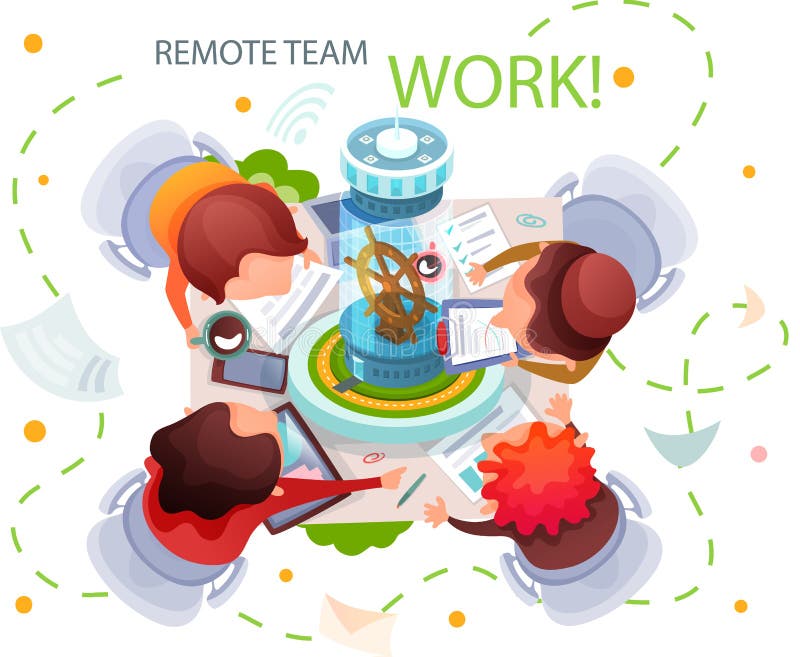How to Construct an Effective Group of Remote Professionals
In today's progressively electronic landscape, the capacity to construct an effective group of remote specialists is important for organizations intending to thrive. It is the subtler aspects-- like nurturing a natural firm society and promoting continual knowing-- that can absolutely set a remote group apart.
Define Clear Goals and Expectations
Frequently developing clear goals and expectations is necessary for the success of a remote team (Remote Professionals). Without these elements, employee may experience complication concerning their duties, responsibilities, and the general goals of the job. This obscurity can result in decreased productivity, misaligned initiatives, and ultimately, job failure
To define clear objectives, it is crucial to utilize the wise standards-- Particular, Measurable, Possible, Relevant, and Time-bound. This technique makes sure that each goal is distinct and can be effectively communicated to all group members. In addition, it is crucial to line up specific purposes with the overarching vision of the company, promoting a feeling of objective and dedication among employee.

Foster Effective Communication

Normal check-ins and team meetings can assist preserve a solid communication flow, enabling members to share progression updates and discuss any type of obstacles they may run into. It is likewise crucial to identify that various people might have varying interaction styles. Comprehending and suiting these differences can bring about more purposeful communications and a more natural group dynamic.
Moreover, clarity is necessary in all kinds of communication, whether composed or spoken. Urge group members to articulate their ideas succinctly and to seek clarification when required. This approach decreases misconceptions and ensures that everybody is on the exact same web page. By prioritizing efficient communication, remote teams can enhance performance, reinforce partnerships, and develop an extra inclusive job setting, inevitably bring about better success in achieving common objectives.

Use the Right Devices
To sustain efficient interaction within a remote team, it is essential to use the right tools that help with partnership and enhance operations. The choice of devices can significantly influence productivity, making sure that employee stay connected and engaged regardless of geographical ranges.
Begin by executing job management software application, such as Trello or Asana, to arrange jobs, established deadlines, and track progression. This cultivates accountability and offers exposure into each participant's payments. Additionally, communication platforms like article Slack or Microsoft i thought about this Teams provide instant messaging capacities, making it possible for real-time discussions and quick decision-making.
Video conferencing tools, such as Zoom or Google Meet, are crucial for face-to-face interactions, which help build rapport and reinforce partnerships amongst employee. Paper sharing and storage services like Google Drive or Dropbox ensure that important files are editable and easily accessible by all team members, advertising cooperation on projects.
Integrating these tools effectively develops a setting where remote experts can grow. By selecting the appropriate innovation, organizations can enhance communication, boost job administration, and ultimately achieve their goals extra effectively.
Build a Solid Firm Society
Creating a solid company culture within a remote group is necessary for fostering interaction and commitment among employees. A well-defined culture gives a sense of belonging and shared function, which is essential when group participants are dispersed across numerous locations. To grow this society, leaders should establish clear worths and expectations that resonate with staff members, making certain that everyone comprehends the goal and vision of the organization.
Regular interaction is important in enhancing this society. Making use of video phone calls, group conferences, and casual check-ins can help maintain connections and promote openness. In addition, commemorating achievements, both large and little, reinforces a culture of recognition and admiration.
Encouraging team collaboration with online platforms not just boosts performance but also promotes interpersonal partnerships - Remote Professionals. Organizing digital team-building tasks can further strengthen bonds among employee, making them really feel a lot more incorporated right into the company
Last but not least, it is very important to pay attention to staff member responses and adjust as required. By showing that their voices matter, leaders can build count on and loyalty, ultimately producing a thriving remote workplace where staff members really feel valued and involved.
Encourage Constant Knowing and Advancement
A strong company see here culture prepares for encouraging continuous learning and growth within a remote group. By promoting a setting that values development, organizations can empower staff members to boost their abilities, adapt to brand-new difficulties, and eventually contribute better to team purposes.
To advertise continuous learning, think about carrying out routine training sessions, workshops, and webinars that align with both specific occupation goals and business needs. Leverage modern technology to assist in access to e-learning systems, making certain that resources are conveniently available for remote staff member.
Urge understanding sharing by establishing mentorship programs and developing online forums for employees to trade insights and best practices. Compensating and acknowledging staff member that actively participate in learning campaigns reinforces the importance of growth and inspires others to do the same.
In addition, conducting regular feedback sessions can assist recognize skill voids and areas for improvement, allowing for tailored growth plans. By prioritizing continuous learning and advancement, remote groups can cultivate a culture of adaptability, durability, and technology, which are essential for navigating the complexities of today's service landscape.
Conclusion
To conclude, the facility of an effective remote group depends upon the combination of clear goals, efficient communication, proper devices, a durable business culture, and continuous knowing chances. By lining up private contributions with organizational purposes and cultivating an environment of openness and collaboration, remote professionals can grow. Remote Professionals. The implementation of these strategies not only enhances team communication but additionally drives inspiration, inevitably bring about boosted efficiency and success in a remote working landscape
It is the subtler aspects-- like supporting a natural business culture and promoting constant discovering-- that can genuinely set a remote group apart.Reliable communication is the keystone of a growing remote group. By prioritizing effective interaction, remote groups can improve productivity, strengthen partnerships, and develop an extra comprehensive job environment, ultimately leading to better success in achieving typical objectives.
Producing a strong company society within a remote team is necessary for promoting engagement and commitment among staff members.In final thought, the facility of an effective remote team hinges on the combination of clear goals, reliable interaction, suitable devices, a robust firm culture, and continuous discovering possibilities.